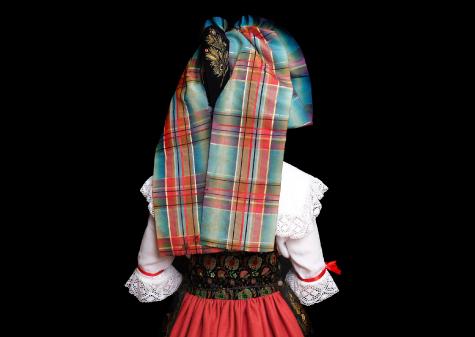Corina Gertz lives in Düsseldorf and works worldwide. Her photographic practice developed from her studies in fashion and costume design, and for many years she has focused on clothing as an expression of cultural identity.
In her series The Averted Portrait, Gertz explores the intersections between textile craftsmanship, ethnic origin, and social identity. Her photographs show women in traditional clothing from behind—a deliberate counterpoint to the ubiquitous frontal portraits of our time. Clothing becomes a vehicle for stories, symbols, and affiliations without placing personal individuality in the foreground.

Corina Gertz
Corina Gertz lives in Düsseldorf and works worldwide. From her studies in fashion and costume design, she developed a photographic practice that explores clothing as an expression of cultural identity.
Gertz thus makes an artistic statement against uniformity and for diversity, memory, and respect. Her work combines documentary accuracy with aesthetic clarity and conceptual depth.
Corina Gertz has received numerous awards for her work, which has been exhibited internationally at venues including MARTA Herford, the Museum Kunst der Westküste on Föhr, the Lianzhou Photo Museum and Shanghai Art Museum (China), and the Victoria & Albert Museum in London (United Kingdom). She has been nominated for the 2025 Meitar Award for Excellence in Photography in Tel Aviv (Israel). In 2025, her works will be part of the European art and sculpture trail Purple Path as part of Chemnitz's year as European Capital of Culture, and will be featured in the exhibition Zwiegespräche (Dialogues) at the German Textile Museum in Krefeld.
Her works fit into international curatorial discourses on gender, textile culture, and global representation – and highlight how fashion, photography, and cultural identity are inextricably intertwined.













